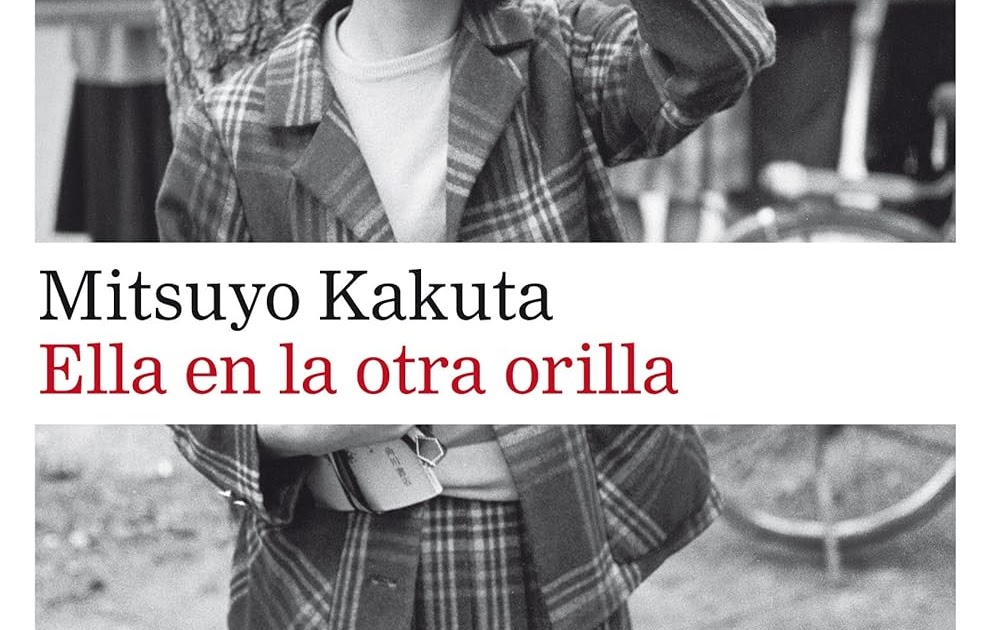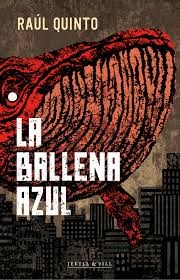
Original language: Japanese
Original title: Taigan no kanojo (Girlfriend on the other side); Yokame no semi (Cicada of the Eighth Day)
Translation: Yoko Ogihara and Ferdinand Cordobas
Year of publication: 2004; 2007
Valuation: highly recommended x 2
I had thought about writing separate reviews for these two novels, but I chose to present them together to present the work of an author who, in my opinion, has not been sufficiently appreciated outside of Japan. Although Mitsuyo Kakuta is a prominent figure in her country, she has not achieved the international fame of other Japanese writers. Through these two works—the only ones by Kakuta translated into Spanish to date—common themes are addressed such as motherhood, the role of women in modern society, isolation and identity crises.
Mitsuyo Kakuta has written numerous novels, short stories and essays, some of which have been adapted into series or films; For example, “The Cicada of the Eighth Day” is available on Netflix. Furthermore, and this is the main reason why I am his fan, Kakuta-san has carried out the monumental task of translating Genji Monogatari into modern Japanese (in addition to using simple language, without honorifics), the founding work of the Japanese novel. But hey, what I brought them to.
“She on the Other Shore” tells the story of Sayoko, a mother who, despite being married (it seems that disenfranchised parents are everywhere), faces raising her daughter alone, while struggling to give her meaning to her life beyond the roles of “mother” and “housewife.” Sayoko decides to take charge of her life and gets a job at a cleaning company. There she meets again with Aoi, who will be her boss, an old friend from university and president of the company. Aoi, single and dedicated to work and pleasure, represents a clear contrast to Sayoko’s life.
The dynamic between Sayoko and Aoi serves as a showcase of the life choices (or resignations) and social pressures that women face in Japan, and by extension, around the world. Through this reunion, Sayoko and Aoi begin to question their own identities and the decisions she has made since graduating from college. Sayoko’s monologues as she performs her cleaning duties come across as deeply moving and revealing moments. Kakuta takes advantage of these moments of apparent triviality to explore the depths of Sayoko’s dissatisfaction and resignation. Through her reflections, we understand her internal struggle and sense of identity, which is continually fragmented between her role as mother and wife, and her own personal aspirations. These monologues not only enrich the understanding of the character, but also raise questions about sacrifice, happiness, and self-knowledge. Additionally, the difficulty Sayoko’s daughter experiences in relating to and making friends with her reminds her of her own past struggles. As Sayoko observes and reflects on her daughter’s difficulties, she faces her own memories of isolation and social anxiety, although she is determined to help her daughter overcome these obstacles.

On the other hand, “The Eighth Day Cicada” offers an equally complex story about family ties and the consequences of past decisions. The protagonist, Kiwako, kidnaps her lover’s baby. This desperate decision begins a chain of events that not only affects Kiwako’s life but also that of the girl and her biological family. Throughout the novel, Kakuta weaves a web of emotions and ethical conflicts, exploring situations such as illegitimate motherhood and stolen identity.
Another of the themes of this novel, and which is of particular interest to me, are religious sects, whose rise in Japan starting in the second half of the 20th century has been the subject of public debate. From infamous cases of cults that resort to terrorism and violence, such as Aum Shinrikyo, to those that, more than worrying, cause shame in others. In this case, we are presented with a religious community made up exclusively of women, who dedicate themselves to a life of devotion and asceticism, although some face an internal conflict when questioning the legitimacy and intentions of their leader. The insertion of this context allows Kakuta to explore how beliefs and faith can be manipulated and become tools of emotional and psychological control, mainly in people who turn to them in moments of desperation.
The narrative of “The Cicada of the Eighth Day” not only stands out for its intense exploration of broken ties and the search for redemption, but also for how Kakuta handles the complexities of human relationships intertwined with themes of power, faith and vulnerability. As Kiwako’s story unfolds, the layers of his own internal struggle and desire to belong are revealed, showing how his initial act of desperation becomes intertwined with the lives of those around him.
Both novels, although different in their plots, are intertwined in their exploration of motherhood and female identity, offering an empathetic perspective towards the social pressures that shape the lives of women in contemporary Japanese society.
Mitsuyo Kakuta is, in my opinion, an essential voice in Japanese literature. His works translated into Spanish are just a sample of his ability to tell stories that are both intimate and universal. “She on the Other Shore” and “The Cicada of the Eighth Day” are outstanding examples of his talent and are highly recommended not only for their literary merit but also for addressing aspects of Japanese culture that are often marginalized in the works of more authoritative authors. mainstream.
Kakuta san was kind enough to talk to me in person about his books. Those who are interested in delving deeper into her work or hearing opinions on the topics addressed directly from the author can check out the interview at the link below.
Source: https://unlibroaldia.blogspot.com/2024/05/resena-entrevista-ella-en-la-otra.html


